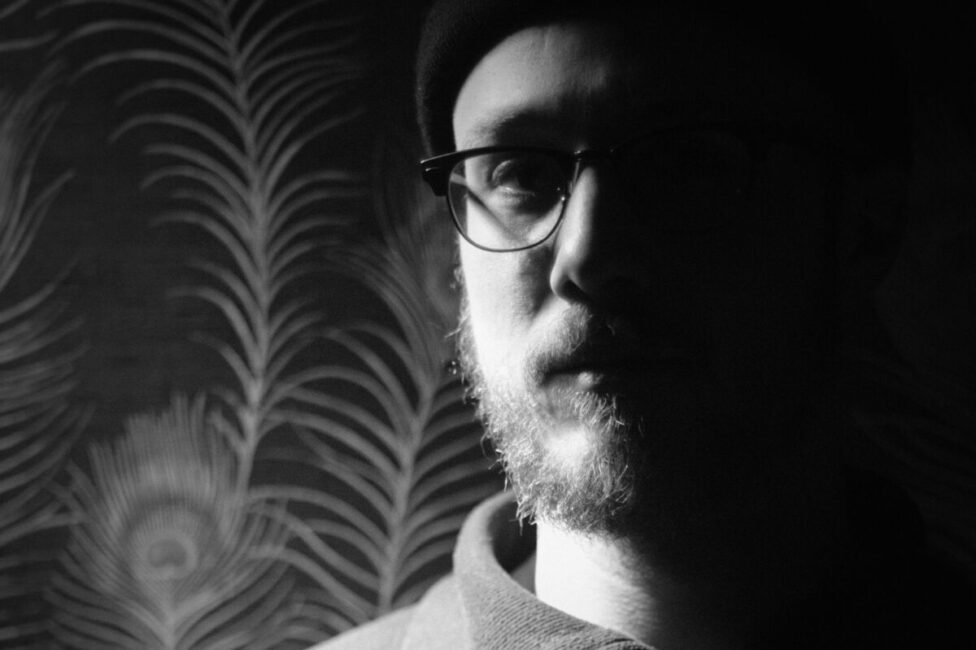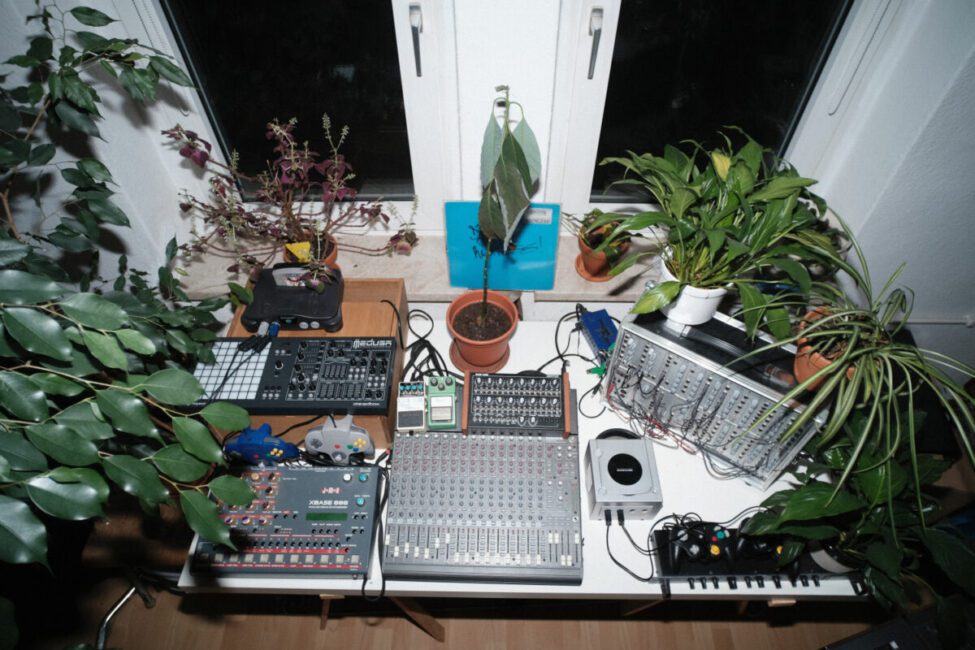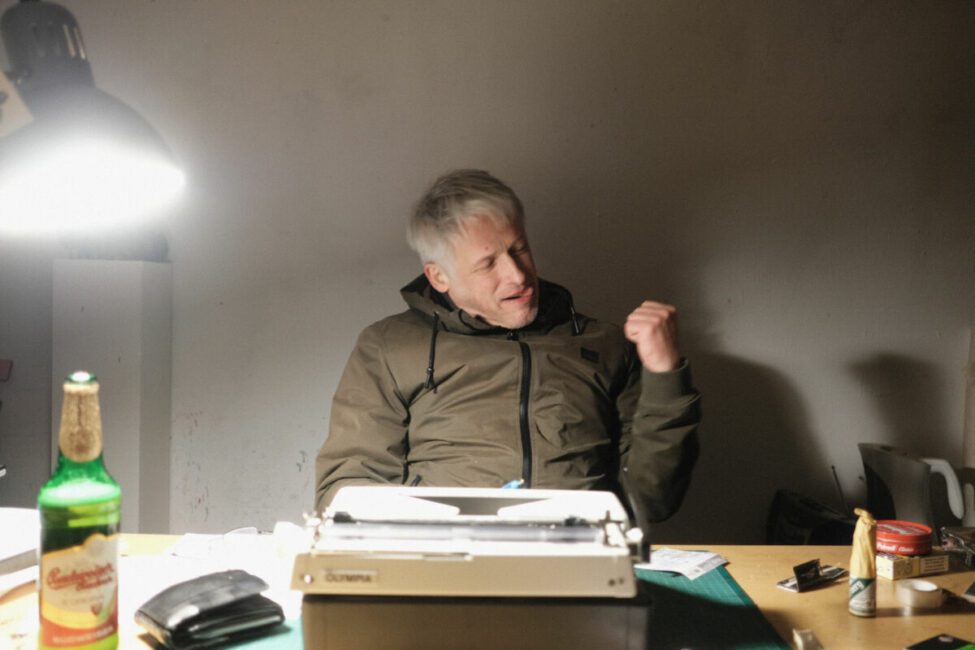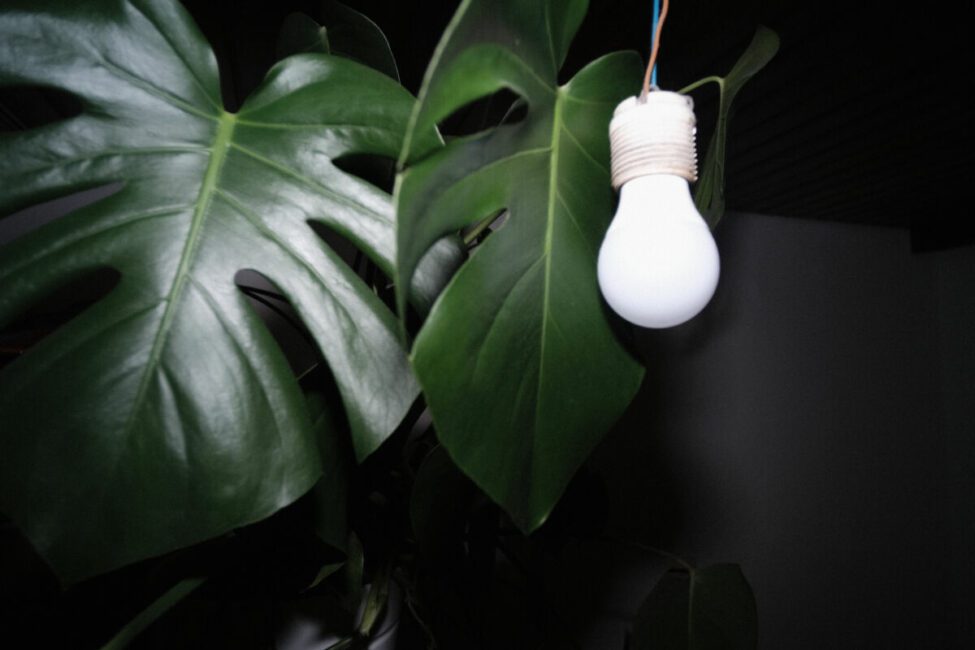Ahead of our sixth and final residency at Zur Klappe on Saturday 8 February, we lift the veil on our headliner His Master’s Voice, inviting the mysterious German producer to speak out for the very first time and to contribute a deft mix intricately weaving through IDM, jungle, breakbeat and ambient electronics.
In the interview below, we discuss his first steps into production and musical heritage. Florian also shares how he first met Vril and divulges how their friendship has blossomed over the years. We also delve into the makings of his debut album ‘Log: a Canis Majoris‘, arriving later this month on Paul Rich’s imprint KCZMRK.
Interview by Tom Durston
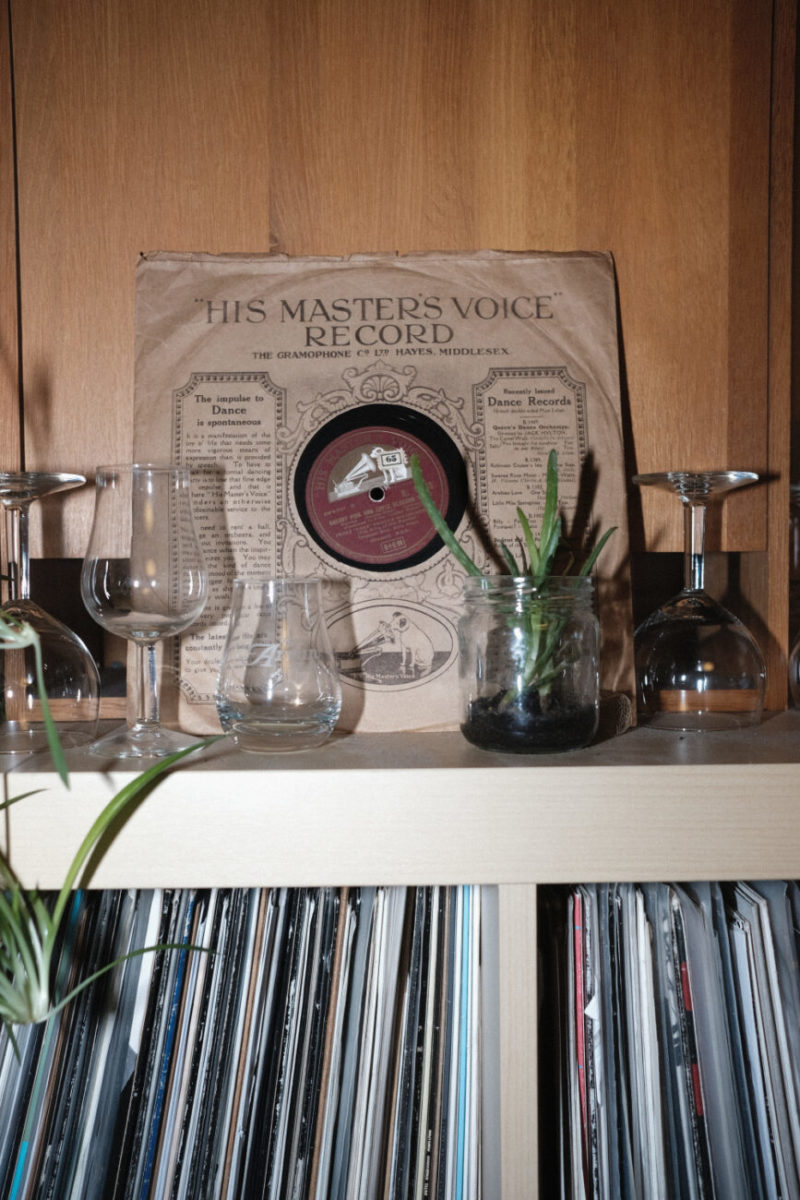
"Never try to consider yourself a master of anything or think you know it all, always try to picture yourself as a disciple, that way, you will never stop to learn and discover new things"
Hi Florian, firstly thank you for recording this mix and for taking the time to answer our questions. Please you tell us where you are currently based and what you have been up to so far in 2020?
Hi and thanks for the opportunity! I’m based in Hannover, Germany. I’ve spent most of my weekdays working, gaming and going through music to implement in podcasts and sets in January, also fiddling with some remixes.
Apart from one weekend where I played lovely Pulsar at Griessmuehle I have not partied or been out. Every other weekend I visit my friends and horses in the countryside and have a good time. That’s my go-to-spot to relax.
How and where was this mix recorded?
The mix was recorded at Bronco’s Bar in Hannover. It’s where I work and I have been playing there regularly since…I don’t even remember that well, maybe five or six years. I record podcasts there because it just has that clubby yet intimate feel that makes deejaying without a crowd feel less weird for me haha.
I used the standard equipment: an old Ecler Nuo 4, two Technics 1210’s and two Pioneer CDJ 2000’s. I’m not a perfectionist and I mostly do it one take and try to stick to it, because “first time” mixes always have some sort of ecstasy for me.
Tell us about the track selection – and more about these HPK tracks? What does HPK stand for?
The track selection are dearly loved, released and unreleased tracks by producers and friends that inspire me and a good bit of my own unreleased material. My focus for this mix were tracks that have a strong emotional relevance for me and that I usually didn’t get to play out in such a combination.
The HPK tracks are still very fresh, from a new cycle of tracks that mean a lot to me. They are all dedicated to my father, he taught me how to play guitar and introduced me to a variety of music. HPK are his initials and I think right now I’m at number seven, still collecting.
In regards to your production alias – His Master’s Voice – this has always been associated with the record store and label HMV. What is the reasoning behind selecting this name?
At first the name was meant as a joke referring to a good friend with whom we’d call each other “master” and “disciple”,”father” and “son” and stuff like that simply because I’ve learned so much from him, but same goes for many close friends.
I was looking for an eloquent remark to that and translated “Die Stimme seines Meisters“. To be honest I got to know about the historical background of the name after I selected it. People started gifting me shellac records or sent photos when they were on holidays, which I think is really cool. Let’s hope I don’t get sued.
Let’s rewind to your early teenage years, how did you go about discovering music and learning about different artists, genres and labels?
The music I knew by then had mostly been through listening to the radio, MTV or my father’s tape/CD collection which had a lot of blues, psychedelic to hard rock, 80s pop and classical music in it. I’ve known some music nerds at school with whom I frequently exchanged new and especially old stuff, swapping CDs and later USB-sticks.
Also my guitar teacher at that time was really good at giving me the input I wanted, one quote I always remember: “Never try to consider yourself a master of anything or think you know it all, always try to picture yourself as a disciple, that way, you will never stop to learn and discover new things.”
What I stated represents a little background, but perspectives really started to open up with upgrading the 56k modem to an ISDN and later DSL connection. The Internet and the possibility for exchange it provided, forums full of music nerds, torrenting, online radio stations, computer games started to have amazing soundtracks, YouTube and so on.
The variety was enticing and overwhelming and I was happy to dive into it. Of course some genres like Jazz, Ambient, Neue Musik, Soundscape Composition (to name some), took me up to a decade more to digest, haha.
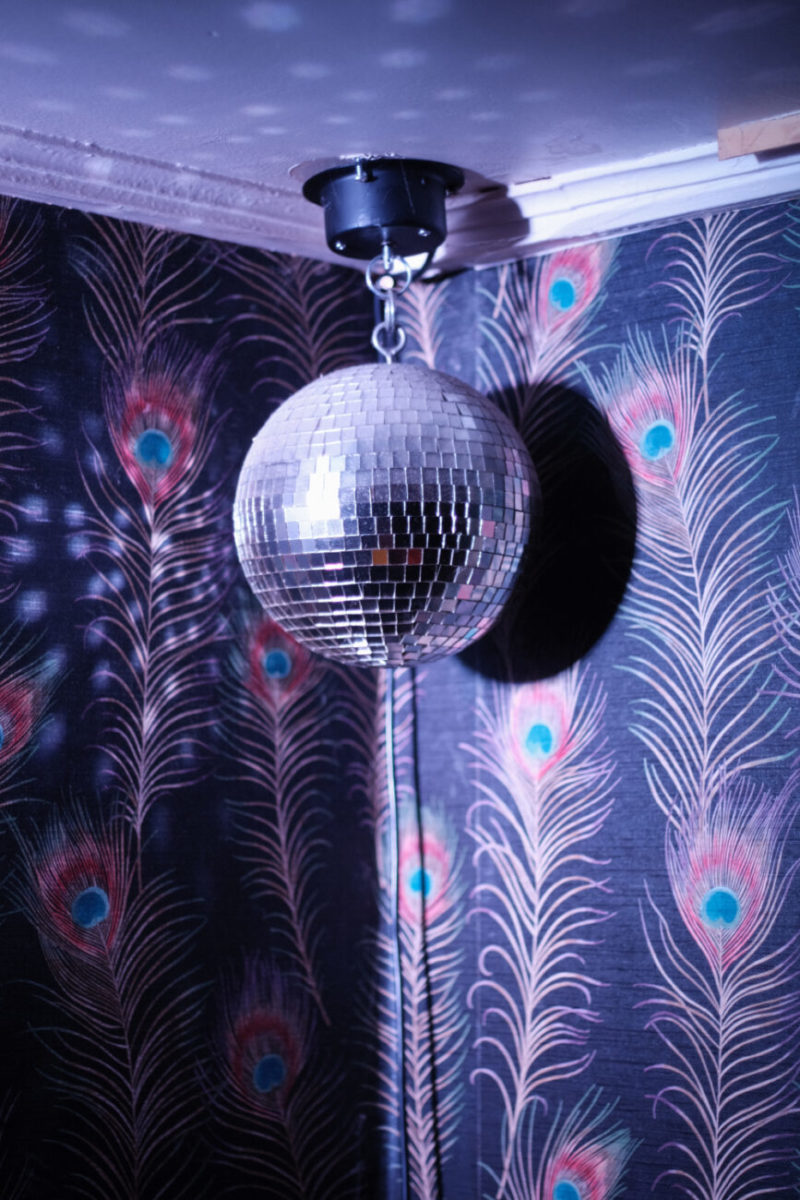
"Musicology broadly widened up my perception of what could be perceived as music, what unifying phenomenon it could be, how many varieties of music there are to be found on this planet... and how self-centred and patronising western European formal music was and sometimes still is"
Which producers, record labels, record shops have had a profound impact on your musical curation and taste?
This is gonna be a long one. Please excuse me.
I think before all of that, four years studying musicology had the biggest impact on me as a musician and as an enthusiastic listener. Musicology broadly widened up my perception of what could be perceived as music, what unifying phenomenon it could be, how many varieties of music there are to be found on this planet (each with their own very specific history and so on) and how self-centred and patronising western European formal music was and sometimes still is.
These studies brought me to the history and aesthetics of electronic and experimental music and ethnomusicology, but also a lot of Jazz and classical music. I’m so glad I did this even though I never got a degree.
Furthermore I was fascinated by video game and film soundtracks, the soundtrack of the game “Freelancer” was one of my first really aware encounters with electronic music and also ambient music (which I started to notice more and more after a good amount of hours played) or the movie scores from Studio Ghibli films by Joe Hisaishi, which always have these harmonies that really catch and hit me.
Also my friend Nils Schumacher from one of the photos has had a profound influence on me. He’s one of the people with the largest musical vocabulary I know and we regularly have listening sessions in his atelier, which is in the backyard of my house.
He’s also one of my favourite critics when it comes to my tracks and he organises experimental, improvisational, noise and free jazz concerts in his rehearsal space for up to 30 people, which I attend as often as possible.
To name some other composers and genres: Blues in general, John Coltrane (and his free jazz stuff like Interstellar Space), Led Zeppelin (spent four years collecting bootlegs of their best gigs), Arthur Honegger, Can, Polvo, Ugandan Amadinda, Javanese Gamelan, Japanese Gagaku, Indian Ragas, Ry Cooder, Journey OST, “Space, Energy & Light” (Soul Jazz Records in general), Hiroshi Yoshimura, Pete Rock, J Dilla, Moodymann, Theo Parrish, Basic Channel, VRIL, Voiski, DJRUM, The Exaltics, Smith Inc, Barry Truax, Paul Lansky, The Black Dog, Autechre, Aphex Twin, Clark, Squarepusher, I’m just gonna say Warp and Rephlex now … Ninja Tune and Illian Tape too. My answer might be a little chaotic but I think that’s enough for now.
Can you list three albums that you’d listen to for eternity?
Hard to pin it down… right now I’d say:
Led Zeppelin – Physical Graffiti
Space, Energy & Light (Experimental Electronic And Acoustic Soundscapes 1961-88)
Leon Vynehall – Nothing Is Still
From what we understand, you have a close affiliation/friendship with Vril – please tell us how you two met and how you exchange ideas for music?
We met at the place where I work, he was playing incognito and we were introduced to each other by a common friend, Sebastian. I didn’t know who he was and he didn’t know that I was making tracks and hoarding them.
At that time all my friends were listening to his stuff and sometimes I can be a bit of a twat – and was like “Everybodies listening to Vril. I don’t need to listen to him as well”.
Things ended in what I recall as a 12-hour-listening session at my place with a lot of happy faces and our friendship grew really close from that moment on. Three days later I was listening through his whole discography and was pretty blown away.
By now he’s one of my best friends and most respected humans on this planet, also someone to learn from about music and life and someone that I really do love in a platonic fashion, haha.
We regularly exchange when his schedule allows and we meet up and try to stick to short meetings of 8+ hours where we listen to each others new stuff, jam, laugh and drink beer.
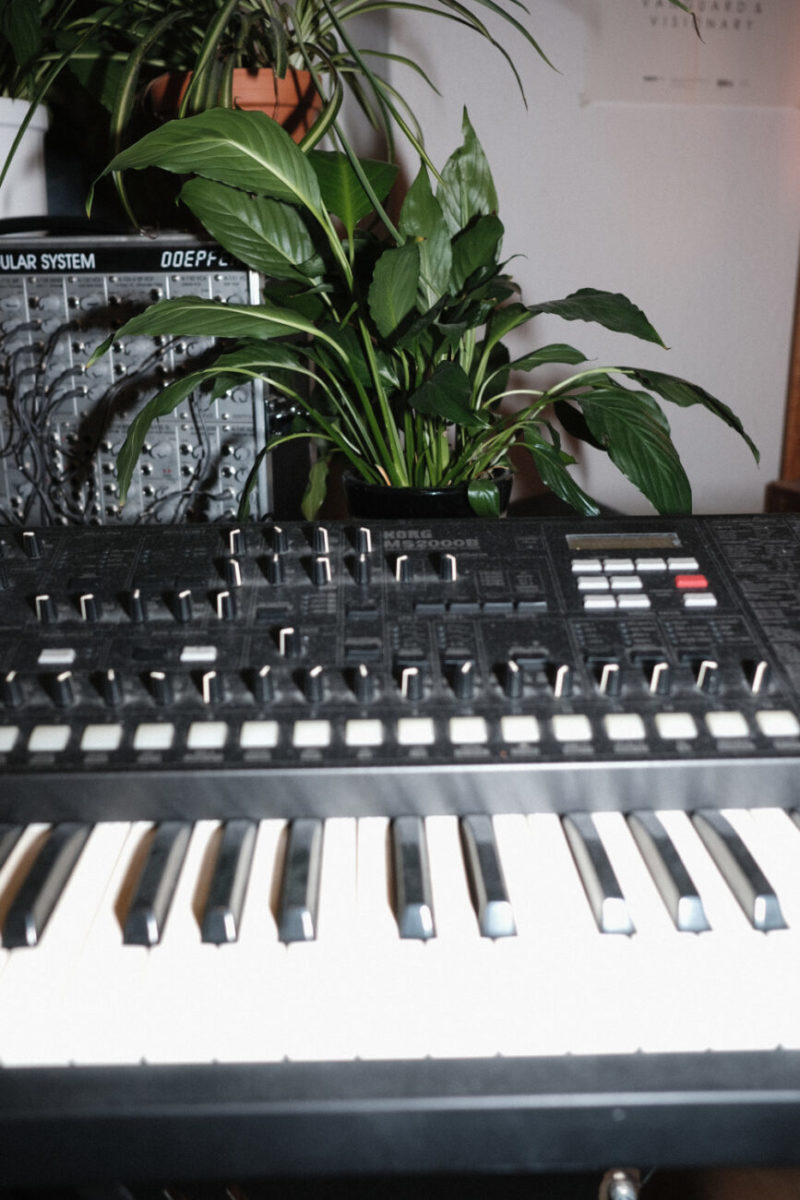
"Making music feels like the most intense form of gaming to me"
In terms of production – when did you start to create your own music and how?
I think I started to write my first songs on guitar when I was 14 years old. I used a loop pedal, my guitar amp and a software called DrumStation playing through my PC speakers and recorded the whole mix with the only microphone I had, which at that time was the one in my 15€ headset.
Later I moved onto a MacBook that I got cheap and started out with Logic, which was quite overwhelming back then. I bought Maschine to add up something haptic to my Logic experience and then my MacBook broke.
As I had no money I started using the standalone Maschine program on my old gaming PC with the speakers from my TV. This really forced me to learn how the program worked because I had so many ideas in my head that I wanted to record. Also it forced me to come up with frequencies below 100Hz until I got decent headphones.
For this article we asked you to take some photos. I am particularly intrigued by the photo of your setup and the subtle inclusion of the game consoles. How have you utilised these sound effects into your music?
Well, not yet, when it comes to the Nintendo stuff, but as I mentioned before video games and their soundtracks have had a big impact on me in general. As a kid, I always wanted to have an N64 or a GameCube, which I mentioned to friends shortly before Christmas. I never imagined that I’d get them for Christmas and I was really moved.
With the photo I wanted to make fun of very fancy and polished looking studios (which are cool), because I need to feel at home in my workplace and it is a chaotic living room. The consoles signify that there’s always the opportunity to take a break and have a fun and channel your inner child. Making music feels like the most intense form of gaming to me.
What about your physical journey on this earth? What are some of your favourite places to spend time and relax?
As I briefly spoke of before, going to the countryside and visiting my friends that live approximately 70km away from Hannover really helps me chill out. I like to go for walks or go cycling in the woods, relax in front of fireplaces, enjoy a good cup of tea and I’m officially on a mission to learn how to ride a horse. So far hanging out and having a good time with them is a big achievement for me already.
When I have the opportunity to go further away from home I love to go to Madeira. I’ve been there a couple of times now, also deejayed there. By now I have some really sweet friends on the island. Going to Madeira is like a ritual of renewal for me. It’s the perfect place to go hiking at daytime, jump in the sea afterwards and meeting some friendly people to have some “poncha” with at night.
Your debut album is about to land on KCZMRK, with the title ‘Log: a Canis Majoris” a clear reference to the cosmos. How much do the stars impact on you and your life?
To start with they don’t have a, so to speak, religious meaning to me of any kind. I’m just a big sci-fi fan and would even go as far as saying I’m a Trekkie with Jean-Luc Picard being one of my role models.
At night, when I look at stars I wonder what is happening up there and really try to “feel the distance”, which also makes me simultaneously think of our nothingness and irrelevance. It’s just that logically speaking the possibility of encountering extra terrestrial life to me is pretty high, just given our tininess in this universe.
What’s the deeper meaning behind the title of the record and the artwork?
The title refers to an imaginary journey to Sirius, the brightest star in the night sky. I learned about it through the game “Freelancer” which is set in the Sirius system. With a distance of 8,6 lightyears it’s one of our solar systems nearest neighbours. There, to flee from war raging on earth five sleeper ships were launched to Sirius for a fresh new start of humanity free of prejudice … romantic, isn’t it?
By reading Wikipedia I found that Sirius appears in historic texts of various different cultures on earth, which might not be any evidence for a habitable home far away but it doesn’t have to be because that’s where my imagination takes over. Also this is a continuation of my first EP “Sirius Incident“, so with the LP it’s time to actually “go” there.
The artwork was basically me talking about the title being independently processed by the artist Pava Wülfert. I somehow liked the idea of contrasting the brightest star with what seems to be a black hole and also the abstract approach to it in general. It feels to me like something is coming to life. After all, what do we know about what really happens in the Sirius system?
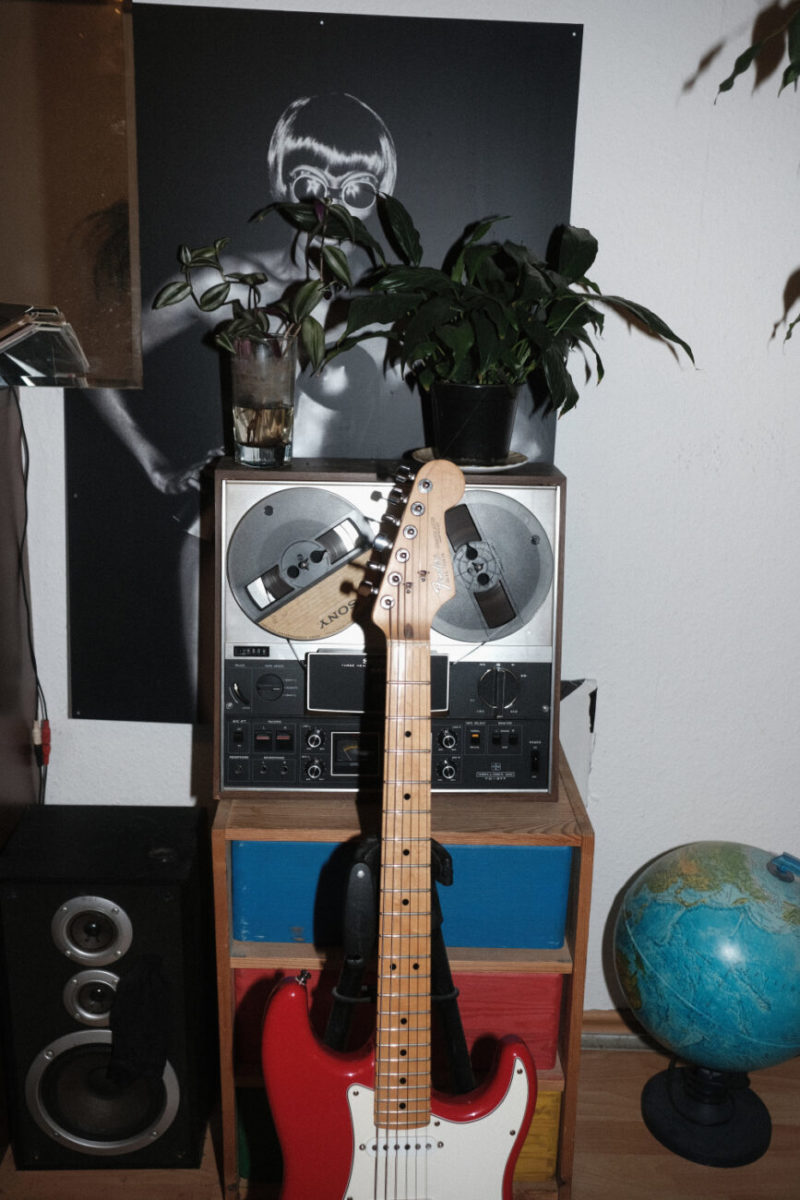
"My album signifies liberation and relief for me. I was also finally able to hear a lot more of "me" in my music and I want to continue on that road and try to push my boundaries further"
The album is a true melting-pot of genre – referencing mid-90s IDM, electro and further experimental electronics – what does this album personally signify to you?
I made most of the tracks in a 4-6 week period commencing in December 2018. Before that I lived through a period of frustration with my own music, which resulted in me not recording or touching anything for almost 6 months.
Before that – making music everyday was my routine but I felt I was busy following recipes that I created and got bored of them. So I said to myself: “Try to go back to that spirit you had when you recorded your first guitar-tracks, free of any shackles or concepts or rules on how and what to record” and that was the moment when the knot of following DJ-playability or certain rhythmical structures in my tracks untied.
It was one of the most liberating experiences I’ve had with making music. My album signifies liberation and relief for me. I was also finally able to hear a lot more of “me” in my music and I want to continue on that road and try to push my boundaries further.
The album contains both calm and chaotic energy. How do these moods play with your productions?
My productions are always reflections of my mood on a certain day, period of time or a specific experience. I don’t plan to implement them though, I do whatever comes rushing through my subconscious and after listening to the first recording (I mostly do one takes) it’s pretty easy for me to identify what the track is talking about.
I think chaos and order are very dependant on each other and can be found in exchange in the micro and macrocosmos. In my opinion a high level of entropy can easily be perceived as something orderly. So I’m basically playing with that when trying to break out and … breaking back in.
You are headlining our final residency at Zur Klappe on 8 February 2020. What are you envisioning about the club and what is the most important thing for you when performing for an audience?
I have heard a lot of great things about Zur Klappe from my friends and given the size of the club I am looking for some sort of intimate counter-play with the crowd.
Music is a serious topic for me that should make a statement, but also paradoxically it is about enjoying yourself and your surroundings to the fullest. I want to put that in my sets and connect with people and see how far we can go together, though I tend to get lost in the music myself when playing. Seems I’m kind of a paradox myself haha.
How have you been preparing for the event? Do you feel that you need to have a process or ritual before performing, or do you shun these?
I try to be as relaxed as possible before any event. Eat something nice, sleep well and enough. Before that it’s selecting tunes to play. I always try to make a few specific playlists of tracks that I really dig and try to keep them short. It ends with one huge playlist of circa 200 tracks plus records every time. I’ve got a karma-shirt that I always wear and I try to use my nervousness as a resource of innovation and surprise.
In parting, what lessons from 2019 would you share with our readers and what else do you have planned for 2020?
Try to be in the moment as much as possible, don’t expect anything, cherish everything and everyone around you.
Plans are to make more music, to work on a new live set that is able to provide improvised versions of already released stuff, to pursue collaborative projects with friends and last but not least play, meet interesting people and learn new things.
His Master’s Voice joins us at our sixth residency at Zur Klappe on Saturday 8th February.
Photography by Cornelius Fittko.
TRACKLIST
1. Squarepusher – Rebus
2. Clark – Cannibal Homecoming
3. His Master’s Voice – 60km Distance Call
4. Priori – Ani Ma
5. Aphex Twin – Soundlab20
6. His Master’s Voice – Shade 5:57
7. Lennart Wiehe – Flut
8. VRIL – Untitled
9. His Master’s Voice – HPK -1
10. 1800 Haight Street – Habit Forming (VRIL Remix)
11. His Master’s Voice – Lunar
12. His Master’s Voice – HPK 4
13. His Master’s Voice – HPK 3
Discover more about His Master’s Voice on Inverted Audio.
